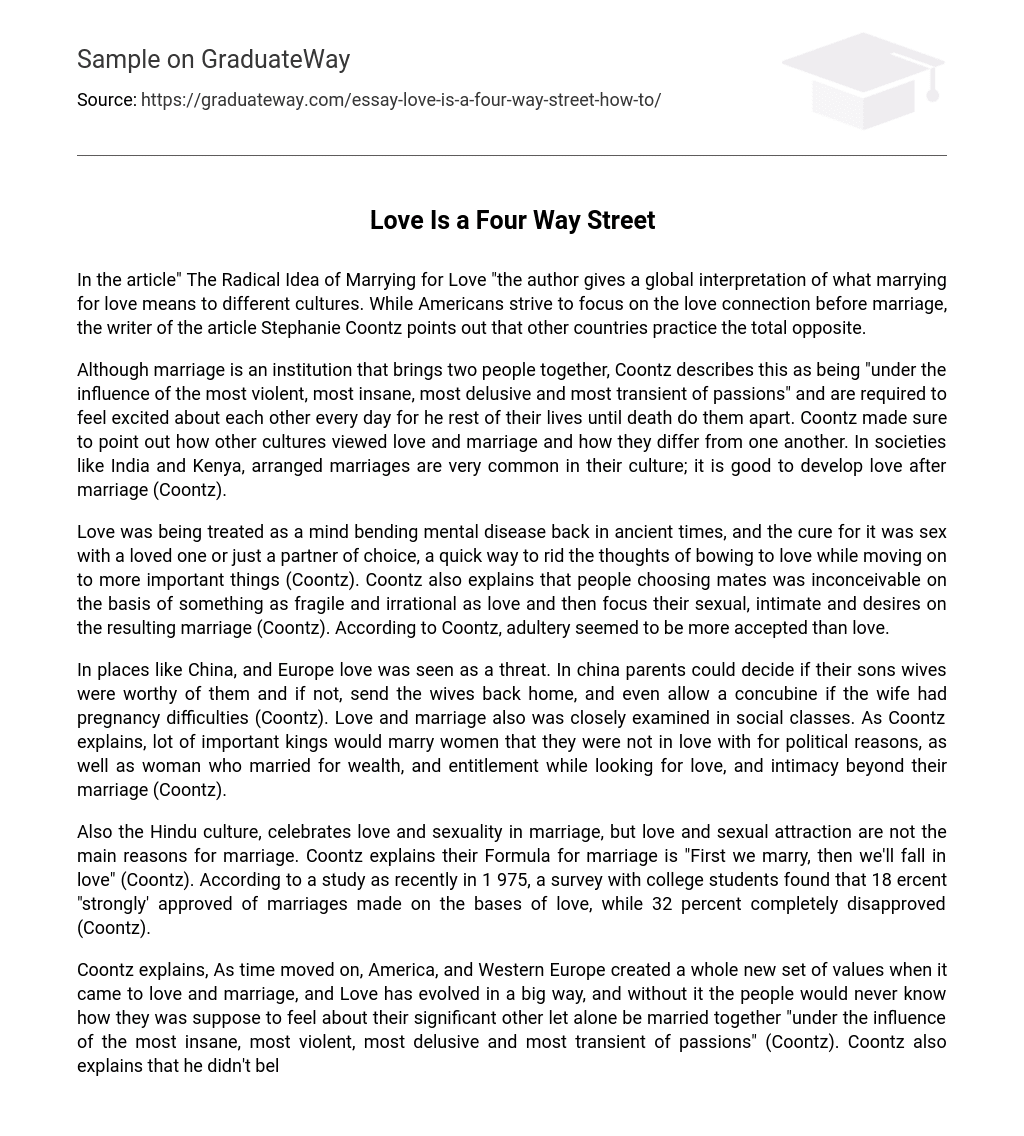Stephanie Coontz’s article “The Radical Idea of Marrying for Love” provides a comprehensive perspective on the meaning of marrying for love in various cultures. While Americans prioritize the love connection prior to marriage, Coontz highlights that other nations adopt a completely different approach.
According to Coontz, marriage is an institution that unites two individuals, but it is also influenced by intense, irrational, deceptive, and fleeting emotions. Coontz also highlights the variations in perspectives on love and marriage in different cultures. For instance, arranged marriages are prevalent in societies like India and Kenya, where it is considered acceptable to cultivate love after getting married (Coontz).
In ancient times, love was viewed as a psychological affliction, and the remedy for this ailment was engaging in sexual relations with a loved one or a preferred partner. This served as a swift method to banish thoughts related to succumbing to love, enabling individuals to prioritize more significant matters (Coontz). Furthermore, Coontz argues that the idea of selecting a partner based on the precarious and irrational concept of love was unimaginable. Instead, individuals directed their sexual, intimate, and emotional desires towards the institution of marriage that resulted from such unions (Coontz). According to Coontz, society seemed to hold a greater tolerance for adultery compared to the acceptance of love.
In countries like China and Europe, love was regarded as a potential danger. In China, parents had the authority to judge if their sons’ wives were suitable partners and, if not, they could send the wives back home. In some cases, a concubine was permitted if the wife encountered pregnancy difficulties (Coontz). Marriage and love were also closely scrutinized within different social classes. As explained by Coontz, many important kings opted to marry women they were not in love with due to political considerations. Similarly, there were women who married for wealth and social status while seeking love and intimacy outside of their marital relationships (Coontz).
Additionally, the Hindu culture engages in the celebration of love and sexuality within the context of marriage. However, love and sexual attraction are not the primary motivations for entering into a marital union. Coontz summarizes their approach to marriage as follows: “First we marry, then we’ll fall in love” (Coontz). Coontz also references a study conducted in 1975, which involved college students and revealed that 18 percent strongly approved of marriages founded on love, while 32 percent completely disapproved (Coontz).
According to Coontz, over time, America and Western Europe have developed new values regarding love and marriage. Love has undergone significant changes, and without it, people would not have a clear understanding of their feelings towards their partners or the ability to be married under the powerful influence of passion. Coontz emphasizes that he does not believe people in the past had more control over their emotions or were incapable of experiencing deep love in marriage, as many aspire to do today.
In addition to the general English department rubric attached to the final draft of the Summary, the rubric below emphasizes the qualities and characteristics of academic summaries that should be included in the final draft. The “X” in the blank denotes successfully executed summary qualities or characteristics in the Final Draft Summary. Those with an “O” indicate areas in the summary that require more attention and revision.





